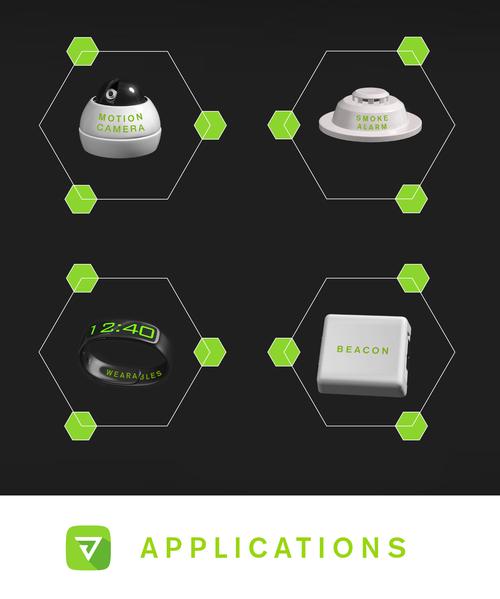Drayson Takes RF Energy-Harvesting Tech from Lab to Market
Drayson Technologies has developed technology called Freevolt that harvests radio frequency (RF) energy to power IoT sensors and devices.
May 18, 2016
Researchers have been working on energy-harvesting technology that uses radio frequency (RF) wireless signals -- basically pulling energy out of thin air -- to generate electricity for Internet of Things (IoT) applications, wearable technology, and other devices. So far, though, most of that work has been relegated to the lab.
That is changing thanks in part to a UK-based startup called Drayson Technologies, which has developed a technology called Freevolt. The commercially available technology harvests radio frequency (RF) energy from wireless and broadcast networks to provide energy for ultra-low-power devices and sensors.
The company and the technology are the result of a relationship between Drayson CEO Paul Drayson and CTO Manuel Pinuela. Drayson told Design News he and Pinuela’s work interests aligned when the latter was working on RF energy-harvesting technology at Imperial College, and the two channeled their mutual interest in wireless technology to develop Freevolt.

RF energy-harvesting technology, called Freevolt, from UK-based startup Drayson is aimed at powering sensors and devices in the Internet of Things (IoT), as well as beacons and wearable technology.
(Source: Drayson Technologies)
Freevolt is different than some other RF energy-harvesting technology that came before in that it does not use a transmitter, Drayson said. The technology features a multi-band antenna and rectifier, which he said allows it to absorb energy from multiple RF bands to provide electricity.
“Freevolt uses an antenna and association circuitry which is capable of absorbing energy from multiple RF bands at almost any orientation; so it’s able to harvest ambient radio frequency energy from wireless networks, including 2G, 3G, 4G, and WiFi, as well as digital TV broadcast transmissions, and use it to power small devices,” he said.
Drayson said the main applications for Freevolt will be to power sensors, beacons, and wearables, with target customers and partners being OEMs and systems integrators looking to apply IoT in their businesses, extend the life of existing battery-powered devices, or develop new products free from the constraints of batteries or wired charging.
READ MORE ARTICLES ON RF ENERGY HARVESTING:
The company recently raised about $12 million to support its business goals, planning to use some of the money to develop a small number of applications that use Freevolt for electricity, Drayson told us.
One of those is the CleanSpace personal air pollution smart sensor, which measures levels of carbon monoxide in the air and gives a representative indication of the levels of pollution, both indoors and out. The data collected by the CleanSpace tag feeds into a related smartphone app, which gives users a constant reading of their air pollution exposure.
But the company’s main focus won’t be on its own products but instead to license Freevolt “broadly across various vertical markets." “We want to set an industry standard for the use of radio frequency harvesting to power IoT devices,” Drayson said. The company last December signed its first partnership with PA Consulting Group, which is currently working on new applications for Freevolt.
Elizabeth Montalbano is a freelance writer who has written about technology and culture for more than 15 years. She has lived and worked as a professional journalist in Phoenix, San Francisco, and New York City. In her free time she enjoys surfing, traveling, music, yoga, and cooking. She currently resides in a village on the southwest coast of Portugal.
About the Author(s)
You May Also Like

.jpg?width=300&auto=webp&quality=80&disable=upscale)

